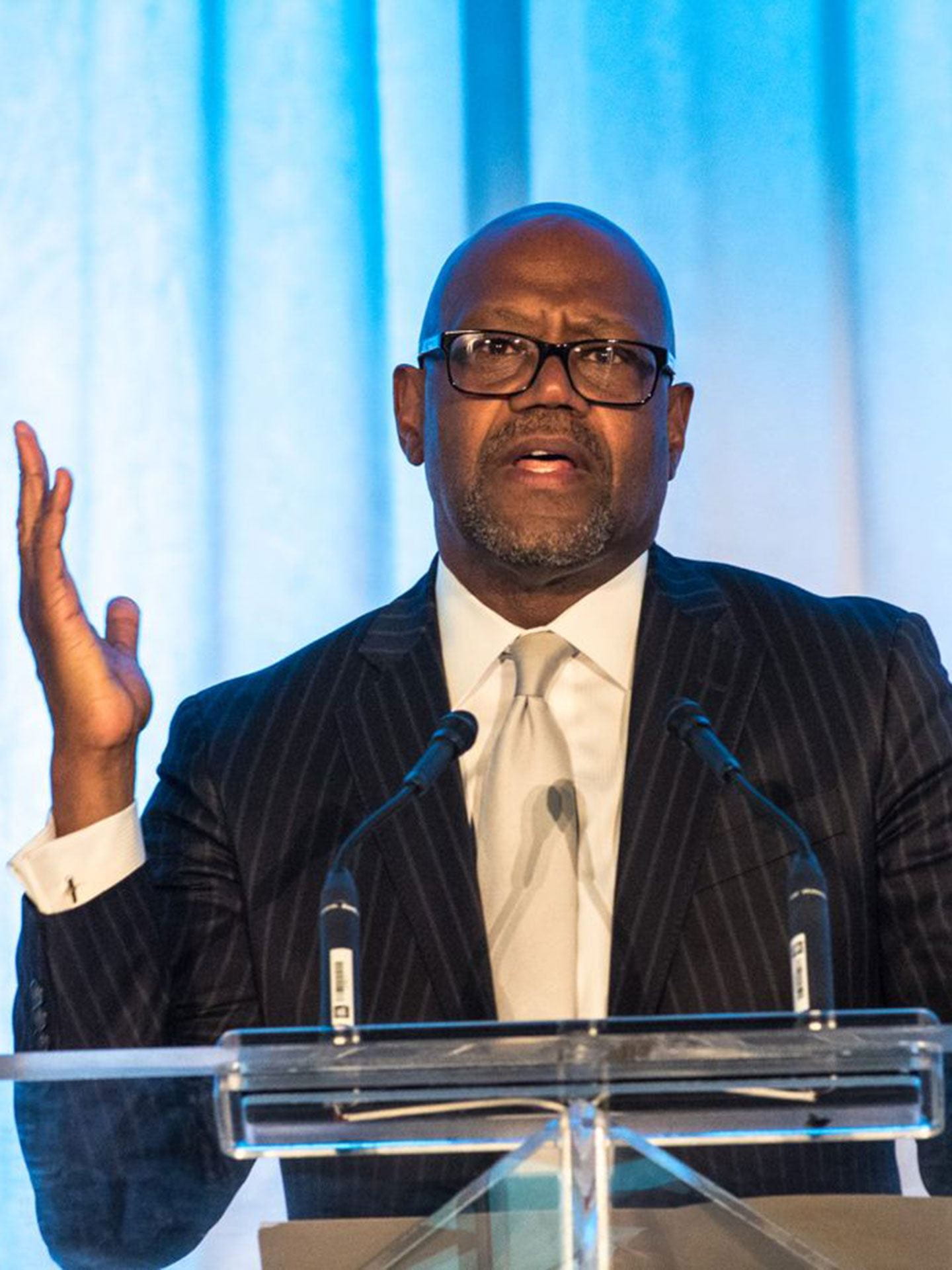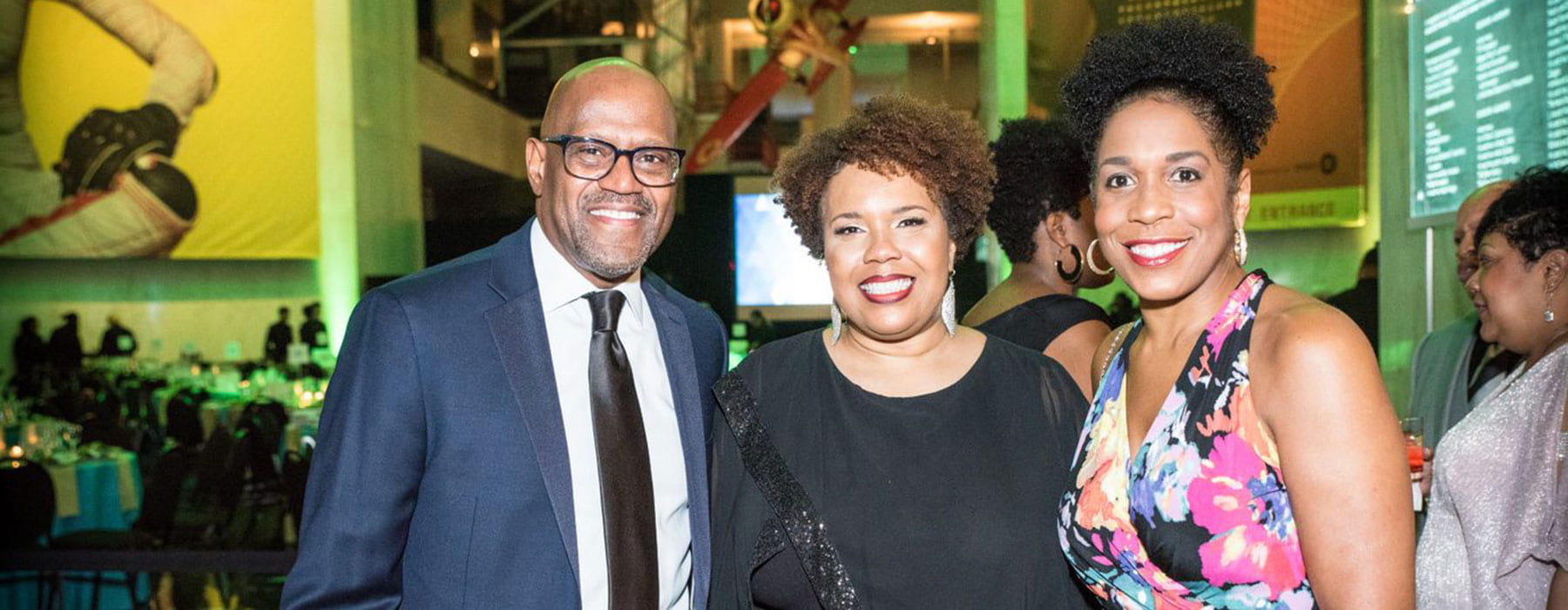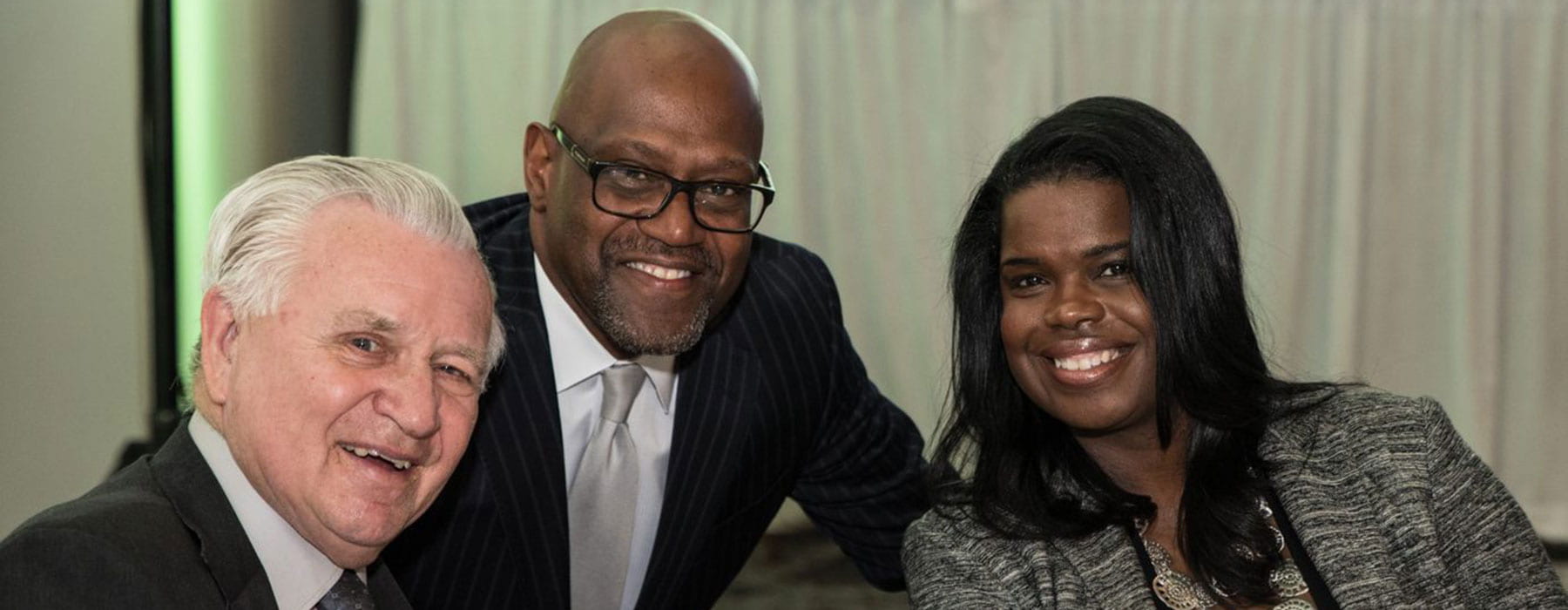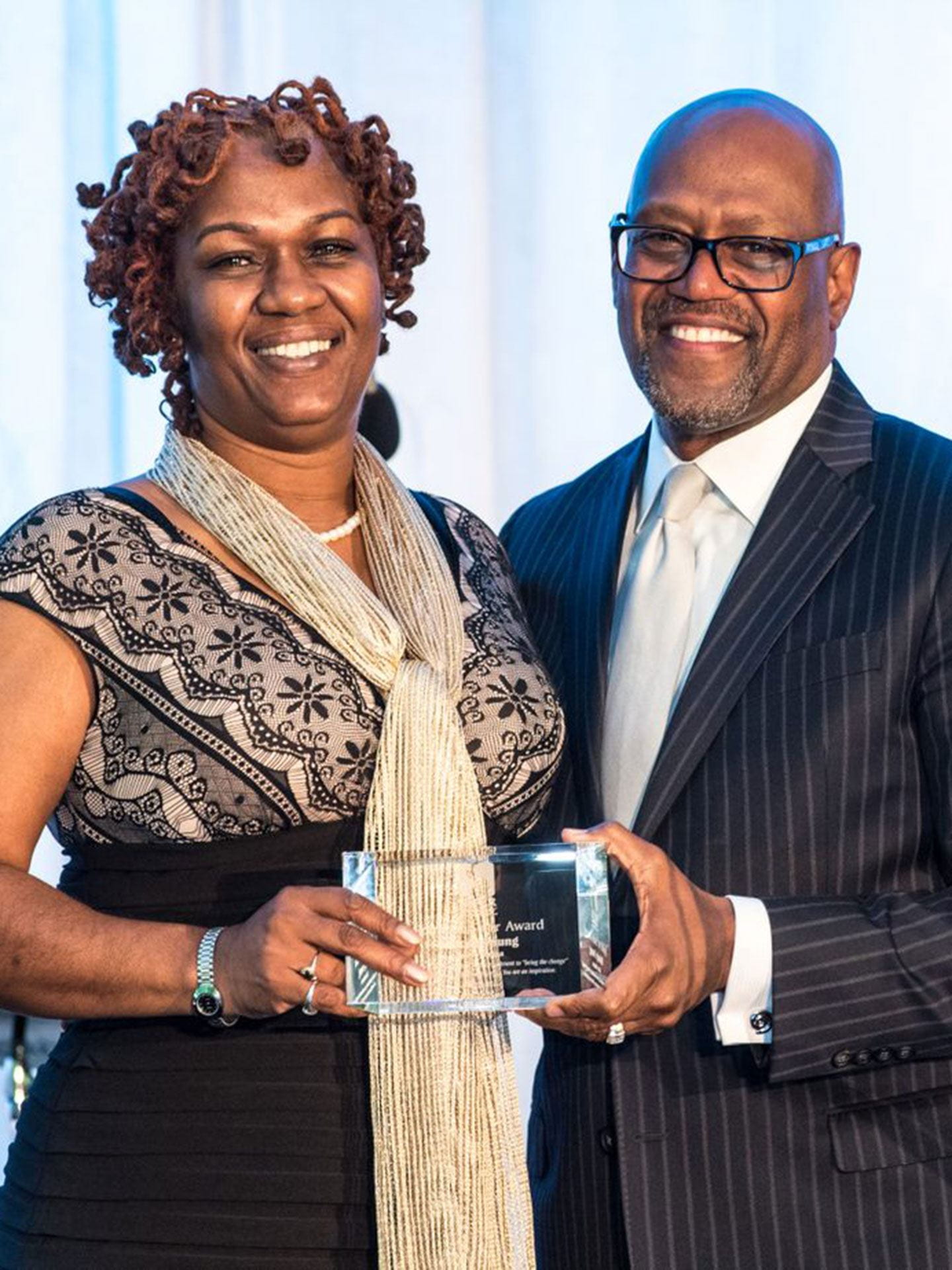Second Chances
Victor Dickson (BA Psychology, ’96)by Laura Janota
Alumnus Victor Dickson’s journey has traversed corporate management, church work and a psychology degree from Roosevelt University. Today the 1996 Roosevelt graduate leads one of the nation’s largest social-impact nonprofits for people with arrest and conviction records: the Safer Foundation, based in Chicago.
President and CEO of Safer since 2013, Dickson brings problem-solving skills once used to improve profit and productivity at corporate giant Sprint to a societal challenge: How do we make second chances work for people with records?
“It’s important work and very much needed,” said Heather Dalmage, Roosevelt sociology professor and director of the Mansfield Institute for Social Justice and Transformation, which advocates for criminal justice reform.
“There are a lot of people out there with records in need of help — not only support in getting back in the job market, but also greater stability, so that they build their families and their communities,” she said. “I believe reentry programs can go a long way toward making the impossible become possible.”
An ordained minister, Dickson oversaw mission work in various countries including Haiti, Guatemala, Kenya and India. He brings a healthy dose of compassion and understanding to reentry for people with records.
“We have people coming here from prison who have no housing, food or opportunity,” said Dickson of the nonprofit. Safer serves more than 5,000 people annually in Chicago through job placement, affordable housing, training and education, as well as policy advocacy.

Victor Dickson (BA Psychology, ’96)
Victor Dickson (BA Psychology, ’96)
“It’s not that those coming out of prison lack the skills to make something of themselves. The fact is that they need a second chance.”
—Victor Dickson (BA Psychology, ’96)
“It’s not that those coming out of prison lack the skills to make something of themselves,” he added. “The fact is that they need a second chance — and we owe it to them as a society to give them that chance.”
Dickson knows personally about taking advantage of a second chance — as a full-time working adult and father of four, he was unable to finish his college degree until later in life.
A Chicago native, Dickson grew up on the city’s South and West sides. Encouraged from a young age to get an education, he saw his grandmother graduate from high school and received his own high school diploma in 1974. His mother finished her first year of college at Prairie View A&M University in Texas, got sick and never returned. She passed away later at 37.
The eldest of three siblings, Dickson was at times responsible for the household as the family struggled to get by on public aid. Things grew even more uncertain after his mother’s death, when he and his siblings essentially entered foster care.
It was a time when Quincy Jones’ “Everything Must Change” was popular. “I played that song over and over,” said Dickson, who knew his mother would have wanted him to go to college. “The song had power and made me think I needed to make a change and go away.”

Victor Dickson, his wife, Talese, and Illinois Lt. Gov. Juliana Stratton
He chose Ottawa University, a private Baptist university in Kansas, but his money ran out with a child of his own on the way.
He got a job as a counselor at a crisis intervention center, helping people find food and shelter. Then he worked as a psychiatric aide in a mental hospital and took classes when he could.
“I think I’ve always wanted to help people,” he said. “It’s why I gravitated to psychology in the first place.”
“I think I’ve always wanted to help people. It’s why I gravitated to psychology in the first place.”
—Victor Dickson
(BA Psychology, ’96)
However, money problems prevailed. He left college and entered sales, first as a sales trainee at Southwestern Bell Telephone, and later at Sprint, working his way up over 20 years to become the company’s vice president of sales support and a world-wide company representative.
“Every generation of my family had made progress in becoming educated, and I knew that I, too, would someday take it to the next level,” said Dickson. He finally got his second chance, enrolling at Roosevelt University in 1993. “I needed a college degree to move up, and Roosevelt gave me flexibility.”
“Every generation of my family had made progress in becoming educated, and I knew that I, too, would someday take it to the next level. I needed a college degree to move up, and Roosevelt gave me flexibility.”
—Victor Dickson (BA Psychology, ’96)
He took independent studies and evening classes with many other adult working students. In three years, he became the first in his immediate family to graduate from college. He soon left corporate life to join the Christian ministry, first at a south suburban Chicago church and then at Safer.
“When you look back on life and think of all you’ve done, it doesn’t always fit into a neat package,” said Dickson. “It’s remarkable to me that I chose a social justice school like Roosevelt, and ended up at a social justice organization like Safer.”
Since its early years as “Chicago’s equality lab,” Roosevelt has prioritized accessibility to and transformation through higher education.
“Students come to us because they have a dream for the future,” said Dalmage. “We give them knowledge, skills and pathways through higher education for personal and social transformation so they can become leaders of the future.”
Roosevelt has its own second-chance program for formerly incarcerated people, the Life Skills Reentry Program. The program provides opportunities for successful reentry to more than 200 people annually.
“Because of a stronger economy and changing attitudes about incarceration, we are seeing more jobs and second chances for those who have been incarcerated,” said David Disabato (BGS ’96), marketing and recruitment manager for the program that started in Illinois prisons approximately 25 years ago.

Safer founder Gus Wilhelmy, Victor Dickson and Cook County State's Attorney Kim Foxx
“A lot of the men and women who attend rehabilitative programs while incarcerated, such as vocational training, build up hopes and dreams about a productive future,” added Disabato, who was formerly incarcerated himself. “However, once they’re released and challenges present themselves, many find it hard to take steps toward careers out of fear that they may fail. That’s where our program comes in. It emphasizes career development, work skills training and good job opportunities, which can help in building confidence.”
The challenges ahead may be enormous. Not only must today’s Safer continue to minister to those who need a second chance — it also must shape public opinion about reentry.
“Most people don’t realize that a third of our citizens today have arrest or conviction records,” said Dickson. “Some are unemployed. Many are poor. Frequently they have health issues and no insurance. A lot of times they’re homeless — and we’ve got to make the case that moving forward as a society means solving these problems.”
Safer is currently at work on a research study about the magnitude of mass incarceration and its societal impact.
“My ultimate goal is that Safer not be needed anymore,” Dickson said. “In order to do that, we must accept that people have had records and let them back in so that they and this country can be more productive and successful.”

Safer client Melody Young and Victor Dickson
Safer client Melody Young and Victor Dickson
